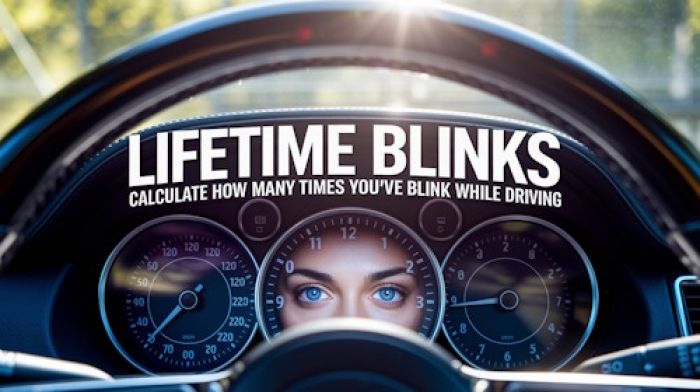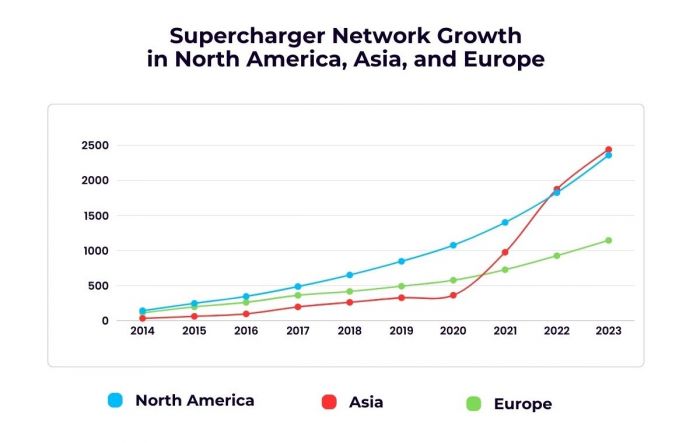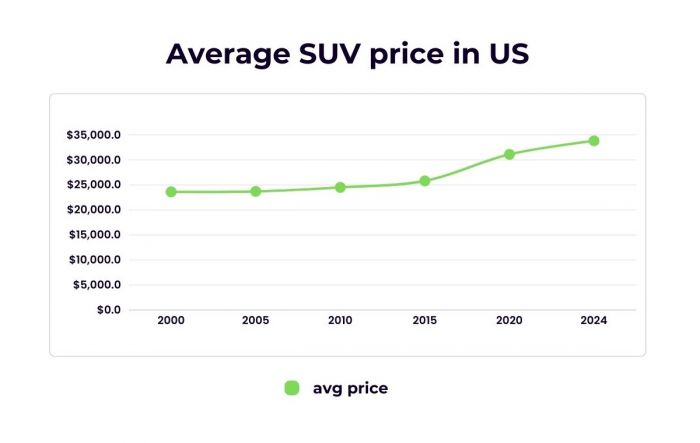Are you having trouble with your Honda Odyssey braking system recently? You are trying to apply your brakes, but you feel like you have to press it more down to the floor? We understand. We received many reports where owners had braking system failures in emergencies. Their Odyssey stubbornly accelerated during park mode when the brakes did not work. It is devastating.
Brake system problem message highlights
- Common reasons:brake fluid low, brake pads thin, EPB problems, bad battery
- How to fix:check the brake fluid level, check the battery, check pads, read the codes
- Possible consequences:you may lose the brakes, be careful
- Priority level:High
- Can you drive?Not recommended
- DIY repair:Possible but complicated
- Repair price range:$150-$500
.jpg)
Soft brake pedal
The soft brake pedal feels spongy when pressed. During this time, the pedal has less pressure. You tend to step on it harder because it would not stop the car abruptly the way it should.
Your pedal can be soft for different reasons. There could be air in your braking system. Air goes into your brake lines when there are leaks. As a result, your pedal can feel soft or spongey when pressed. In this case, you should drain off the air until your pedal feels there is resistance to stop the car.
You must have low brake fluid levels. The brake fluid serves as your system's lifeblood and transfers your foot's force into the pedal to the calipers or brake drums to stop or slow your car down.
If there are low brake fluid levels, it will lose substantial force to stop or slow down your vehicle.
Low fluid levels will make you feel soft or like there is a little force when depressing. You can fix this problem by topping your Odyssey with brake fluid.
Another reason your brake pedal is soft is that your brake pads must have worn out. If there is enough air and brake fluid in your Odyssey, you can visually inspect your brake pads for signs of wear.
Replace your brake pads when worn. Ideally, your brake pads should last between 25,000 to 65,000 miles. Change your brake pads every 6,000 to 7,000 miles to avoid losing control over your brakes while on the road.
Another reason why the pedal becomes soft is because of the stuck caliper. Calipers become stuck due to debris or rust build-up. You can try cleaning and lubricating them. If this remedy doesn't work, the best thing to do is replace them with new calipers.
Sticking Brakes
If your brakes are not releasing or are hard to depress, your brakes are sticking. A lot of reasons cause the brakes to stick and not release. One reason why the brakes won't release is due to corroded caliper bolts. The only way to fix this is to replace the caliper bolts.
Second, if faulty shims or particles get in the way of your caliper slides, your brakes may stick. Your brake pads would wear out. This event would result in brake pads not disengaging from the rotor when pressed. In this case, you must clean the slides and replace the shims and brake pads when needed.
Also, the caliper piston could have a bad seal preventing it from moving freely. If this is the case, you need to remove and disassemble the caliper, pry out the seal, make sure the area around the piston is clean, and replace it with a new rubber seal.
In addition to that, worn or cracked brake hoses can result in brake sticking. During this time, the brake hoses could form leaks and let air get into and contaminate the brake lines. Bring your vehicle to your service shop for regular brake hose maintenance because corrosion and damage in the hose can be hard to conclude. It is advisable to change your brake every 30,000 miles.
Excessive vibration on steering wheels
One of the most common brake problem occurrences in the Honda Odyssey is the excessive vibration of the steering wheel, especially when driving down the hill. Many complaints and reports go with steering wheels shaking when pressing the brakes. A shaking steering wheel feels unsafe as you may feel like losing control of the car. In worst-case scenarios, the entire vehicle shakes and becomes a safety hazard.
In some cases, the shaking happens even though the brake rotors are fairly new. The common cause of this problem is warped rotors. Rotors become warped because of excessive heat or friction. In most cases, Honda would resurface or replace the rotors. However, some had to replace rotors multiple times for experiencing the same problem after having serviced.
Good thing Honda addressed most of these rotor problems, and most cases come from earlier model years of Odyssey.
Squeaking noises when applying the brake
Honda Odyssey is also notorious for having squeaking noise when applying brakes. They can be loud, distinct, and annoying. They can have a high pitch and release some metallic squealing noise. These noises are not distinct to any year model because any year model of Odyssey may experience this sound. And it is not something to ignore.
A lot of reasons come when brakes make squeaking noises. The first reason is worn-out pads. These sounds produce when the metal backing plates touch the rotor discs. Second, the anti-rattle clips that keep the brake pads from vibrating and bouncing between the rotor and calipers could be installed improperly or damaged. Another reason the brakes produce squeaking noise is the pads, rotors, shoes, drums, or discs could have been glazed.
Brakes don't work while in park mode
We also found reports of brakes not working when applied while on sudden acceleration in park mode. This problem could be devastating as brakes are supposed to work during emergencies like this. In these cases, the brakes must have been soft. It could be because of low brake fluid levels, leaking brake lines, worn-out brake pads, or a faulty master cylinder.
False ABS activation
False ABS activation happens when the vehicle automatically releases the brake, even if not needed. The ABS is an automated braking system where the computer releases brakes when it detects danger. It activates when the system detects the wheels are about to lock up. It releases the brakes when detecting the wheels are about to slip or skid on a straight surface, making sharp turns, or having low traction control.
However, this technology sometimes could malfunction. Sometimes, the system falsely concludes that the wheels are about to skid when there are low brake fluid levels. Sometimes, the sensors are faulty due to dirt build-up or having loose connections. It could receive and send wrong signals, triggering the ABS to stop abruptly.
Aside from wiring issues notorious for activating the brakes, a faulty ABS modulator valve can also cause falsely trigger the ABS. When the valve allows too much brake fluid, it can cause sudden short stops and cause possible rear-end collisions.
Also, sticking calipers can be blamed for false ABS activation. Sticking calipers will keep the system partially engaged, slowing down the wheels. And when the speed goes below its threshold, the ABS will activate.
When it comes to ABS errors, the only way you can find the component with issues is to get it scanned.
Brakes locking automatically
We also received reports from owners experiencing having wheels and brakes become locked. In this case, the wheels and calipers cannot rotate, resulting in the vehicle being unable to move. Brakes could lock up because of failing mechanical components like rusty rotors, worn-out brake pads, and old or damaged calipers. If any of these components are damaged or corroded, you need to replace them for the smooth operation of your braking system.
Also, your brakes could lock up if your hydraulic system is going bad. If your vehicle runs on contaminated brake fluid, it could damage your brake lines and cause the brakes to lock up. In this case, you must drain your brake lines and fill them with fresh brake fluid.
Additionally, your brakes may lock automatically if your wheel bearings are loose and malfunctioning. Another reason your brakes lock automatically is because you could have failing wheel speed sensors or your ABS computer is failing.
How to Troubleshoot Brake System Issues in Honda Odyssey?
You can fix most brake problems by looking for the cause of the problem in the braking system.
- Inspect your brake pads, rotors, and calipers. These parts are the main components of a brake system.
- Check your hydraulic system and brake lines. This system is the heart of your braking system, and you want them to distribute pressure smoothly.
- Check brake fluid levels and purity. Your brake fluid should be enough to deliver force and be free from contamination.
- Inspect your ABS. It should be working properly, updated, and reset after any performed repairs. To reset your ABS, turn your engine off and disconnect the battery for about 10 minutes. This procedure will clear previous codes in the computer. Your ABS should reset after reconnecting the battery and turning your engine on.
Final Thoughts
The braking system is a crucial safety mechanism for any car. When this function fails, it could not only cost repairs but cause irreversible bodily injuries and worst life. For this reason, you need a properly working braking system to help you equip when driving on the road.
While Honda Odyssey is one of the most loved vehicles by Honda, its braking mechanism and not always perfect. Many factors come into place to keep braking system components in good condition. Remember to bring your Odyssey to your service shop as recommended for braking system maintenance. Keep your hydraulic lines clean. It only takes regular maintenance to keep your vehicle safe.
About the authors
The CarAraC research team is composed of seasoned auto mechanics and automotive industry professionals, including individuals with advanced degrees and certifications in their field. Our team members boast prestigious credentials, reflecting their extensive knowledge and skills. These qualifications include: IMI: Institute of the Motor Industry, ASE-Certified Master Automobile Technicians; Coventry University, Graduate of MA in Automotive Journalism; Politecnico di Torino, Italy, MS Automotive Engineering; Ss. Cyril and Methodius University in Skopje, Mechanical University in Skopje; TOC Automotive College; DHA Suffa University, Department of Mechanical Engineering






Add comment